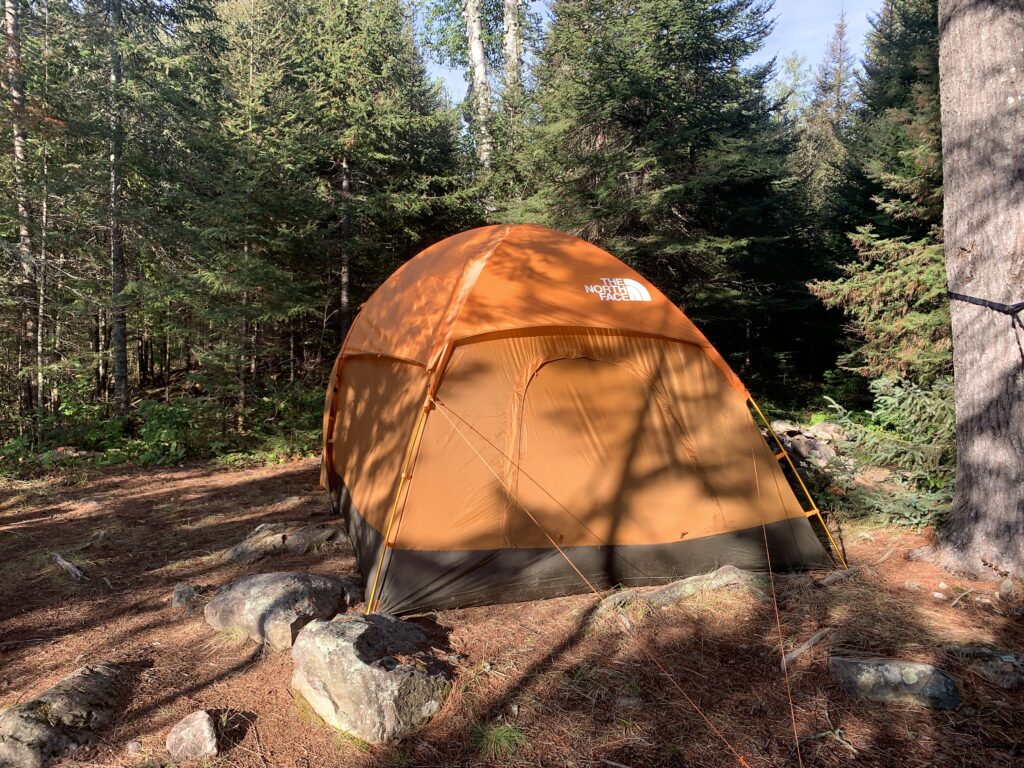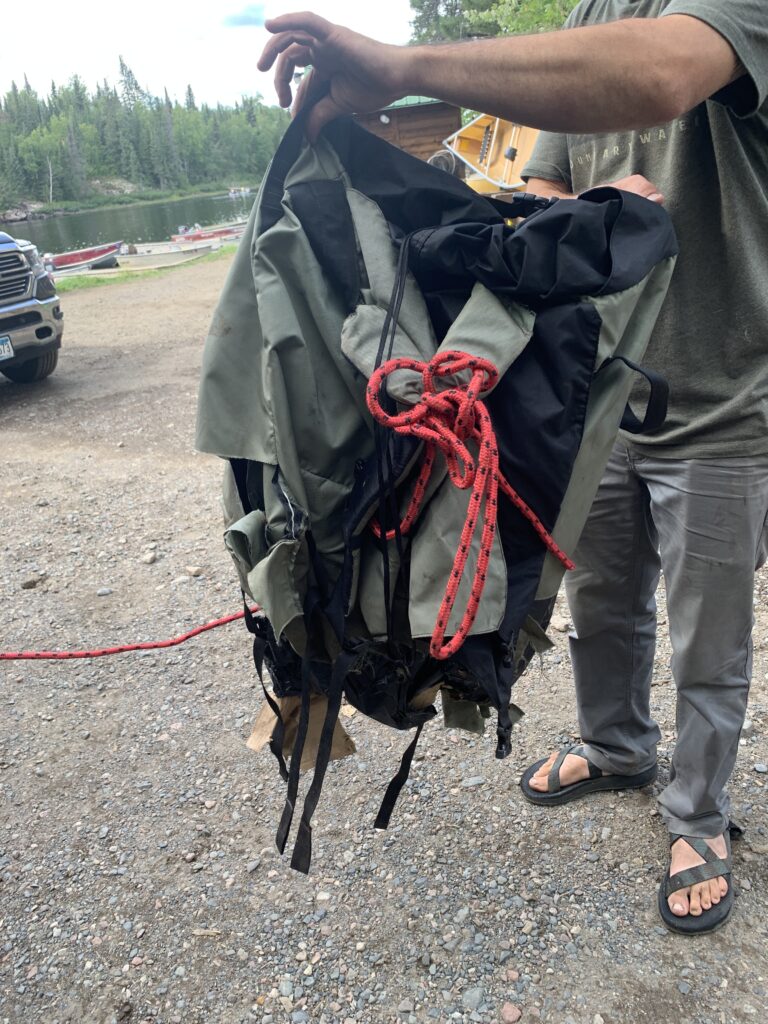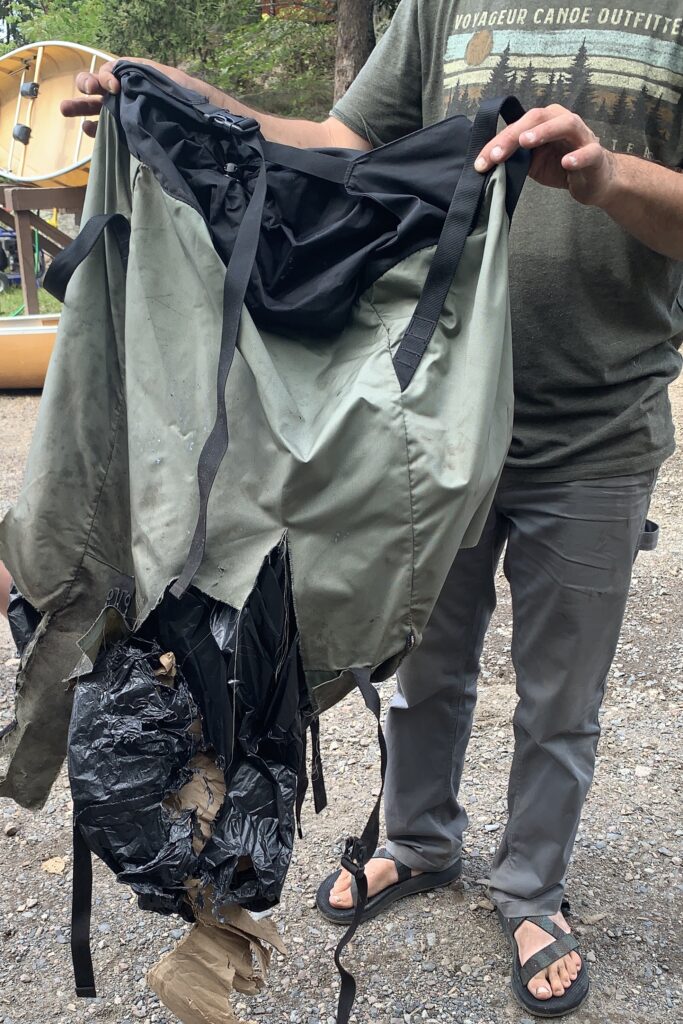Be bear aware in the Boundary Waters
There’s still time to paddle and camp in the Boundary Waters this fall. Just keep in mind bears are looking to fatten up before they hibernate for winter. When camping in the wilderness remember bears are capable of swimming to islands, climbing trees and reaching food packs that aren’t hung far enough away from trees- as one of our guests learned on their recent canoe trip.
The Superior National Forest has some advice for people in regard to black bears.
| Superior National Forest managers urge visitors to be Bear-Aware Duluth, Minn., – September 8, 2023 – Superior National Forest managers urge the public to learn and practice Bear Aware principles for the protection of both visitors and bears. The following areas on the Forest are seeing an increase in bear-human conflict reports: Gunflint–Grand Marais area Clearwater Lake, Rose Lake, Duncan Lake, Alder Lake, Moon Lake, Caribou Lake LaCroix–Cook area Agnus Lake This year has been a banner year for natural bear forage across the State of Minnesota – berries and acorns in particular have been abundant. Thus, bear-human conflict has been much lower than usual statewide. However, a number of the recent incidents in the Boundary Waters Canoe Area Wilderness on the Superior National Forest have been linked to improper food storage. Superior National Forest Wildlife Biologist, Cheron Ferland, points out that “once a bear is ‘rewarded’ with human food or garbage, it is likely to become habituated and continue the behavior, which could ultimately lead to the bear being dispatched.” There are several things that people can do to reduce the potential for unwanted bear encounters like the recent instances reported across the Forest. Especially when camping, ALL food, cooking equipment, and garbage should be stored out of reach of bears or in a certified bear-resistant container. Be aware that bears may also find anything with a strong or sweet odor attractive such as toothpaste, lip balm, scented personal products, sunscreen, clothing with food odor, etc. A bear can smell food wrappers inside a tent. A clean campsite is much less likely to catch the attention of bears in the area. Bears are excellent swimmers; so, precautions must be taken on island sites as well. Help protect yourself; learn and practice these important precautions: After each meal, the dishes should be washed immediately at least 200 feet away from the sleeping area and water source. Consider a small collapsible pail to help carry water. Keep camp stoves away from the tent area. Toiletries, food and garbage should be placed in a CERTIFIED bear-resistant container. The Interagency Grizzly Bear Committee (IGBC) has a certified list of products (https://igbconline.org/programs/bear-resistant-products/). “Blue barrels” have been proven to NOT be bear resistant and are NOT on the certified list. Additionally, it is best to suspend the food container out of reach by hanging it from a high line between two trees. The container should be located at least twelve feet above ground and at least six feet from the trees on either side. Protect the trees in the process with wide flat straps. If in a dispersed site or developed campground, it is best to store these items in a hard-sided vehicle. Do not count on a cooler to protect your food, unless it is on the IGBC Certified Bear Resistant Products List (see link above). Most coolers are not bear-resistant containers, but some can be modified for bear resistance (see link above). Bears can smell bottled beverages and food in plastic coolers from a few miles away. Once a bear is rewarded with food or something sweet in one cooler or tent, it learns to bite and tear into other tents and coolers. Dispose of fish remains by traveling at least 200 feet away from campsites, trails, portages and shorelines. Avoid leaving food unguarded at the canoe/boat landing or at the end of a portage. If it is not in a bear-resistant container, it is an easy target and can train a bear to frequent high-use areas. Remember, bears swim from island to island. If you do encounter a bear, most will be scared off if you make noise (shout, bang pots or throw fist-sized rocks at the bear, etc.). A very persistent bear may be discouraged by spraying pepper spray into its eyes. For more information on hanging equipment techniques and precautions visit the Superior National Forest Bear Awareness Website at: Camping and Picnicking in Bear Country Local residents in bear country must also be bear aware, especially those that live next to public land. Keep pet food secured in the house, remove bird feeders at night, and store garbage in a building or bear resistant trash containers. Once a bear learns that human food is easily accessible, the bear will elevate its efforts to get it; putting people and bears at risk. Once a bear has been “rewarded” by human food/garbage, it will likely continue to seek it out, so prevention is key. Often these bears must then be destroyed due to human negligence. To learn more about safe living and camping or hiking in bear country, check out: http://www.bebearaware.org/ For more information on certified bear resistant products and bear safety tips visit the Interagency Grizzly Bear Committee website at: Interagency Grizzly Bear Committee (IGBC) – ID, MT, WY, WA (igbconline.org) |



